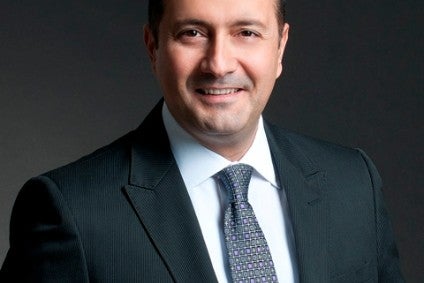
Cutting tax levied on cars in Turkey could see penetration rates leap 50% claims the national distributor association, which is explaining to Ankara how the move would stimulate the market.
Only around 200 people per 1,000 population own a car in Turkey compared to between 500 and 600 in Europe and outside the traffic-clogged megalopolis of Istanbul, this extremely large country clearly has room for growth.

Discover B2B Marketing That Performs
Combine business intelligence and editorial excellence to reach engaged professionals across 36 leading media platforms.
Tax is relatively high in Turkey; In Europe there is no VAT but Ankara imposes VAT plus a special consumption tax – 18% VAT plus 45% special consumption tax. Discussions are ongoing to lobby the Turkish government to reduce this and stimulate demand, but it seems tax collection challenges mean the administration may be reluctant to relax fiscal rules.
Despite the punitive tax rates, it appears Turkish consumers’ appetite for vehicles has not been dented and sales have improved to around 1m per year.
“Although tax increased by the end of 2016, the market is keeping its rate of sales at around 1m, which is an important signifier of the of the potential of the market,” Turkish Automotive Distributors Association (ODD) executive coordinator, Hayri Erce told just-auto in his offices in the Istanbul district of Besiktas.
The ODD has just published numbers showing the passenger car market in Turkey rising 1.5% in the first quarter of this year, although LCV numbers decreased 10%. For March, the corresponding figures were +7.5% and -9%.
Although such high tax levels are clearly a disincentive to some, Turkish buyers are nonetheless keen to acquire vehicles, especially as the average car parc age is so old.
Specifically, Turkish passenger car sales rose 5.4% in the first quarter to 122,310, with LCV numbers falling 9.9% to 36,120.
“We made a lot of simulation and explained to the government [about tax],” added Erce. “It is clear when you reduce the tax level it can easily mean up to 250-300 [penetration], dependent on the level of tax.
“One of the problems with Turkey is the foreign trade deficit. We don’t have any oil and the current deficit is around 5% of GDP…therefore the surplus credit by the automotive industry [of] around US$6.5bn is [an] extremely important contributor to the decrease of the current account deficit.”
There are five main car companies in Turkey; Renault, Fiat, Toyota, Hyundai and Ford with commercial vehicles. Around 80% of production is exported.
“Availability of credit is not difficult, only the cost issue,” added Erce. “Traditionally, it was two-thirds of the market was consumer credit, but in the last years because of the interest rate, around 55% of sales are through finance and the rest through cash. Turkey is still a cash market.
“The interest rate is 12%,13%,14%…but for car buying it is 16%,17%, it is another obstacle. Inflation is now in two digits around 11%. Now the government is starting a programme to lower inflation – in the Ministry of Finance they established some committees especially in the food and beverage industries because food is an important contributor to inflation.”
Despite those rather gloomy statistics, Turkey nonetheless recently posted GDP growth rate of 7.4%, a figure Erce describes as “huge” compared to Western Europe. To underpin that GDP growth, around 60% comes from consumption, particularly from young people as Turkey has an average age of just 30.
To bolster the market further, Ankara introduced a credit guarantee fund last year for SMEs, which the ODD credits for around 1% of that GDP growth rate.
“I am optimistic,” noted Erce. “Of course there are many variables – the car parc is getting older and therefore should renovated.
“I can see the government timetable is to grow GDP by around 5.5% – if every year it means the Turkish automotive market will continue to grow.”






